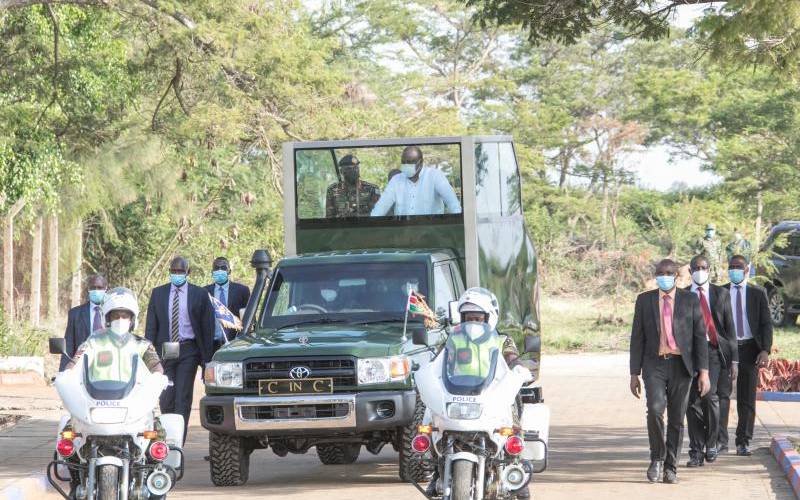×
The Standard e-Paper
Kenya’s Boldest Voice

President Uhuru Kenyatta arrives at Thika Barracks in Kiambu County to preside over the launch of assorted Kenya Defence Forces (KDF) operational and engineering vehicles and machinery.
Vicious behind-the-scenes battles for the Uhuru Kenyatta succession have kicked off in earnest even as the president races against time to salvage his legacy. And now some political players are linking the quiet wars in Uhuru’s corner to the poor showing of his Jubilee party in Tuesday’s by-elections.